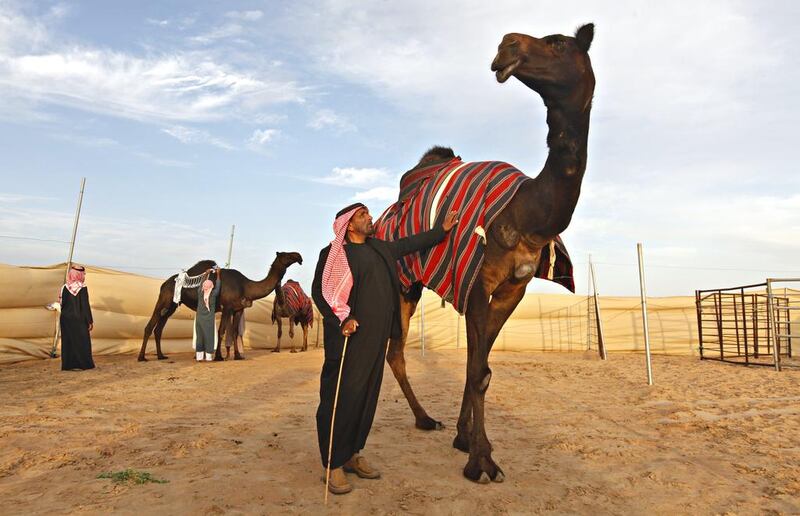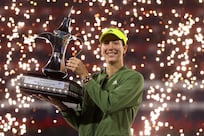You might think that camel you bought for Dh200,000 at the Adihex auction was a Wonder Camel. And you might be right. But unless your camel starts doing wonderful things on the track, chances are that it will inherit the name of its most famous ancestor.
There are two ways to name your camel. The first is to name it for its family and showcase its genealogy.
Family names matter a great deal in the Arabian Gulf, even for camels. A breed is like a tribe. An enormous amount of information is gleaned from a camel's name. For instance, if I meet a camel named Shaheen, I know she's a descendant of the original Shaheen camel owned by and named for an esteemed Ras Al Khaimah Bedouin and that its great-grandfather was the camel Misk, who was owned by an Umm Al Qaiwain sheikh.
And I’m just a camel novice. Imagine what true camel lovers take away from a single name.
Traditionally, most people name their camel for the breed unless it proves truly exceptional. This is not because of a lack of creativity but simply because an inexperienced descended from a great camel will have a better reputation and higher value than a poor racer with an original title.
Some camels and their offspring were famous studs and this explains why you will meet so many Shaheens and Jabbars around the Emirate. Generally, having a series of camels named after your camel is an enormous honour and only happens a few times in a generation.
(There are ways around this: Mohammed Zayed Al Mansoori of Madinat Zayed never had an exceptional camel but named the 300 camels at his stables after his region of Al Gharbia, branding his name without producing a famous bloodline. Race administrators eventually banned this and made him name each camel.)
And as we all know, genetics do not determine destiny and are no guarantee of success or, more importantly, temperament.
This brings us to the second way to name your camel: style. Give it a special name that will make it famous.
“People want a name will make people will never forget this name,” Al Ain Abdullah told me. “Some camel names are still in the memory of the people for 20 or 30 years.”
“If you keep the name Shaheen or Jabbar, people know this is from a good source,” Al Ain Abdullah told me. “But if you put a fancy name, people can remember this camel.”
People like to name race camels for the things they love — an good employer (Etisalat), a noble city (Baghdad), a football stadium (Qatar's Aspire) and of course football clubs. A few years ago, there was a season where the track was crowded with Barcas and Barcelonas. You will all remember our not-so-mystic camel Waslawi, whose name means fan of Al Wasl, the Dubai football club that her owner so loved. (link4)
Beauty camels are a totally different story. For some reason, race camels take fairly generic, dare I say bland names, but beauty pageants are all about, well, pageantry and show. This applies to names, and beauty queens are named to intimidate. Common beauty camel names include wahida, the one and only and mukhowfa, the frightening one. If it’s fear inspiring and fits well in a poem, it’ll do.
And that is how you name your camel.










